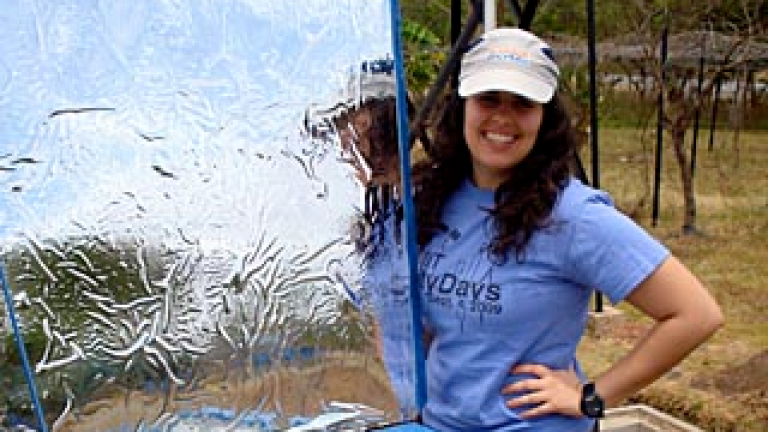
D-Lab: Energy offers a hands-on, project-based approach that engages students in understanding and addressing the applications of small-scale, sustainable energy technology in developing countries where compact, robust, low-cost systems for generating power are required. Projects may include micro-hydro, solar, or wind turbine generators along with theoretical analysis, design, prototype construction, evaluation and implementation. Students will have the opportunity both to travel to Nicaragua during spring break to identify and implement projects.
D-Lab: Energy is part of MIT's D-Lab program, which fosters the development of appropriate technologies and sustainable solutions within the framework of international development.
Content highlights: Lecture videos, lab videos, student project presentation videos
Image rights: During the spring break trip to Nicaragua, students worked with community partners on various projects like a solar oven, shown here baking sugar cookies. (Photo courtesy of D-Lab on Flickr.)
Taught By: Amy Banzaert, Amit Gandhi



